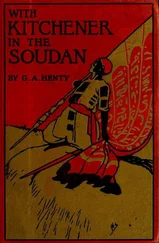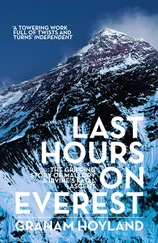Susan Jones - A Girl of the North. A Story of London and Canada
Здесь есть возможность читать онлайн «Susan Jones - A Girl of the North. A Story of London and Canada» — ознакомительный отрывок электронной книги совершенно бесплатно, а после прочтения отрывка купить полную версию. В некоторых случаях можно слушать аудио, скачать через торрент в формате fb2 и присутствует краткое содержание. Жанр: foreign_prose, foreign_language, на английском языке. Описание произведения, (предисловие) а так же отзывы посетителей доступны на портале библиотеки ЛибКат.
- Название:A Girl of the North. A Story of London and Canada
- Автор:
- Жанр:
- Год:неизвестен
- ISBN:нет данных
- Рейтинг книги:5 / 5. Голосов: 1
-
Избранное:Добавить в избранное
- Отзывы:
-
Ваша оценка:
- 100
- 1
- 2
- 3
- 4
- 5
A Girl of the North. A Story of London and Canada: краткое содержание, описание и аннотация
Предлагаем к чтению аннотацию, описание, краткое содержание или предисловие (зависит от того, что написал сам автор книги «A Girl of the North. A Story of London and Canada»). Если вы не нашли необходимую информацию о книге — напишите в комментариях, мы постараемся отыскать её.
A Girl of the North. A Story of London and Canada — читать онлайн ознакомительный отрывок
Ниже представлен текст книги, разбитый по страницам. Система сохранения места последней прочитанной страницы, позволяет с удобством читать онлайн бесплатно книгу «A Girl of the North. A Story of London and Canada», без необходимости каждый раз заново искать на чём Вы остановились. Поставьте закладку, и сможете в любой момент перейти на страницу, на которой закончили чтение.
Интервал:
Закладка:
The Lethe had steam up, and was puffing and moving slowly.
“I am so glad. It is very hot. How cool the air is.”
They passed Paul in his canoe. He waved his hand to Launa, who was staring into the water, and appeared absorbed in the depths or in her companion.
CHAPTER IV
That night Launa could not sleep. She was so angry with Paul Harvey and with herself; she loathed herself. Her ideas of men and their passions were those of a young girl, to whom passion is unknown, to whom men appear as gods. She considered a man must love a woman by whom he has a child. Love, love! Paul was the father of a squaw’s child – of a squaw’s child; it reiterated in her brain until she almost writhed with anguish. She had thought of him as always her own. The shame of it! And worse than shame, the pain, because she would have to give him up. Oh, to get home! To be able to wander about alone! Away on the big barrens where she could move as she liked, and tire herself out. Their wind-laden sweetness would revive her, their vastness would bring peace; she was so tired of the life away from “Solitude.” She forgot how much joy hope had always given to her. She had hoped. The past tense is easily conjugated once, but to live in the past for ever, to regret for ever is torment, death-like torment. She resolved not to regret, not to suffer, and so she read Carlyle until daylight.
Next day Mrs. Montmorency’s party drove to Paradise. There were wonderful beech woods in which to walk. Paul met them there. His first look was for Launa; she was standing talking to two men, and he joined them and waited with patience, until at last he asked her to go for a walk.
“No, thank you,” she said. “I am too tired to walk.”
“I want to show you the trees. Come into the wood and sit down, you can rest there.”
“Well, I will walk,” she answered.
She looked at him with an involuntary air of appeal. She was not afraid of him, she assured herself, only afraid of herself. Some day he might tell her things, ask her questions, and she, through weakmindedness, might answer. They started to walk, and she still meditated. Why should she think he cared for her? Ah yes, and why did she want him to care? These questions opened an endless vista of ideas and feelings before her. She felt indifferent for the moment, as no doubt he did.
“The view is lovely,” she exclaimed at last. “Let us go to the village.”
“What are you thinking about?” he asked, coming nearer and looking at her.
“Of many things. I think in heaven I should miss the sweetness of the air which is here.”
“So should I.”
They walked down the road past a cluster of Indian cottages. A young squaw with a baby in her arms sat in front of one of them. Launa looked at her and at the child; its hair was more curly, and not quite so black as the long, straight locks of Indian children.
“What a queer baby!” she exclaimed.
She looked at her companion. He was digging with his stick in the red clay of the road; his eyes were hidden; a red flush mounted to his forehead, and he was singularly embarrassed. She turned away and walked slowly on, followed by him in silence.
“What is that noise?” she said.
They heard a sound like a moan quite near them, and it grew louder; something – some animal – was suffering intensely.
“Look!” she cried.
In a ditch by the roadside lay a horse, thin, so thin that his bones seemed as if they would come through his skin. A few children clustered round, throwing stones at it at intervals and poking it with sticks. Blood slowly oozed from a wound in its head, and its poor body was covered with sores.
“Do something,” she said, and her voice quivered with the horror of it. “Can’t we put it out of its misery? Whose horse is it?”
Paul had driven away the children, and gone close to it.
“Someone has half shot it; it must be in torture.”
“Go and borrow a rifle,” she said. “I will stay here and keep away those little fiends. Do go.”
“You are not afraid?”
“Afraid? No, only so sorry. What horrible, unavailing suffering! Go, and be quick.”
He walked briskly away, and she strolled up and down. The children came near to stare at her, but they ceased to torment the horse. She could not bear its eyes; they seemed to beg of her to kill it, and she could do nothing. She clasped her hands together with such force that they hurt her as she longed and longed for Paul’s return. It began to grow dusk. She had forgotten tea, and the rest of the party – would they be looking for her, and imagining all sorts of things? Meanwhile the horse’s moans grew louder; the young squaw with the baby came slowly down the road – the baby was crying.
Launa asked if she knew who owned the horse.
“A man named Morris, who lives down the road four miles away. He turned him out to die; he is too old to work or eat.”
The baby wailed.
“Your child is ill,” said Launa.
“Yes,” grunted the girl, who was so young and almost pretty; “my grandmother cursed him.”
“Cursed him?”
“Because of his father, he – ”
“Oh,” interrupted the other, “will Paul never come? If he would only be quick.”
She could not bear these revelations. The moans of the horse and the shrill misery of the child were torturing her.
Someone suddenly threw a stone from behind the shelter of a spruce tree; it struck the horse, which gave a sharp scream. In the distance Launa heard footsteps. She ran down the road. It was Paul.
“I am so glad you have come,” she said breathlessly, quickly. “Hurry. Did you get a rifle?”
“Are you glad ?” his voice changed. “Yes, I have it.”
“The horse is suffering so terribly.”
He looked at her with a certain wistfulness which was unusual.
He is going to tell me he is sorry for that , she thought, remembering the squaw and the child who had come near them.
“Go, go and put him out of his misery,” she said, with quick anger and excitement. “There is so much torture, so much suffering for animals, women, and children. Oh, God! it is awful!”
He turned and saw the Indian girl.
“You,” he said merely, but with bitterness, almost hatred, in his tone. “Go away.”
“You are a brute,” said Launa, “to talk to her in that way. What has she done? Go and kill the horse.”
“Not until you are further away,” he said, with gentleness. “He may, and probably will, scream. That woman is not fit for you to talk to or to touch.”
For one moment Launa felt afraid, and she wanted to ask him to come with her down the road out of earshot, away from it all. The twilight was growing dense. The horse would scream; ugh! how horrible the suffering! There were witches abroad in the night – witches of selfishness, of pain, of terror. She wanted Paul to put his arms round her, to kiss her, even with the girl near with his child in her arms. She felt degraded, and yet loath to let him leave her, until she remembered the horse.
“Come with me,” said Paul, and he took her hand and led her down the road. “There is a big rock here. You will wait for me? Sit down and I will wrap your cloak round you; you are cold.”
Her teeth chattered with apprehension as he walked firmly back. She listened with her fingers in her ears, hearing only the thump of her heart beating. One, two sharp reports and a sort of checked scream told her it was over before he came back.
They walked quickly to the hotel, where the rest of the party were waiting dinner. They were curious as well as hungry, and anxious to hear the result of all this wood walking. They discovered nothing; neither Launa nor Paul appeared happy, or at ease. He ate his dinner with indifference; she ate nothing, and felt as if all her body, beginning with her teeth, was beyond her control.
Читать дальшеИнтервал:
Закладка:
Похожие книги на «A Girl of the North. A Story of London and Canada»
Представляем Вашему вниманию похожие книги на «A Girl of the North. A Story of London and Canada» списком для выбора. Мы отобрали схожую по названию и смыслу литературу в надежде предоставить читателям больше вариантов отыскать новые, интересные, ещё непрочитанные произведения.
Обсуждение, отзывы о книге «A Girl of the North. A Story of London and Canada» и просто собственные мнения читателей. Оставьте ваши комментарии, напишите, что Вы думаете о произведении, его смысле или главных героях. Укажите что конкретно понравилось, а что нет, и почему Вы так считаете.












